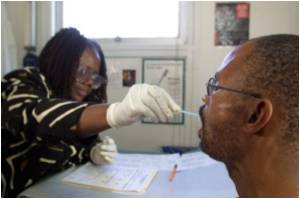Pulmonary embolism is higher among Blacks in US, a new study shows.

Pulmonary embolism can occur in otherwise healthy people. It can be life-threatening, but prompt treatment with anti-clotting medications can greatly reduce the risk of death.
A new study of 1,960 White-Americans and 368 Black-Americans with objectively diagnosed venous thromboembolism (VTE) showed that, compared to Whites, Blacks had a significantly higher proportion with pulmonary embolism (PE), including idiopathic PE among Black women, and a significantly higher proportion of Blacks with VTE were women (71% vs 61% for Whites) The study is published today in the American Journal of Hematology.
VTE is blood clots in veins and consists of deep vein thrombosis (DVT), a blood clot in the “inner” or “deep” vein, typically of the leg or pelvis, and its complication, PE, a dislodged DVT that has traveled with the returning blood to the heart and become lodged in the lungs. Most epidemiologic studies of VTE risk factors have been conducted within White-American and -European populations. However, compared to Whites, Black-Americans appear to have a higher risk and incidence of VTE. Two single nucleotide polymorphisms (DNA sequence variations), factor V Leiden (G1691A) and prothrombin (G20210A), have been identified as risk factors for DVT and PE in Europeans and White-Americans, but not Black- Americans.
“VTE appears to be more common in Blacks than Whites, but while we have identified many inherited causes for VTE in Whites, no such inherited causes in Blacks have been identified,” said lead researcher Prof. John Heit, of the Mayo Clinic College of Medicine, Minnesota, USA. “We wondered whether Blacks were more likely to have VTE related to common exposures that can cause VTE, such as major surgery, hospitalization for acute medical illness, trauma, fracture, or birth control pills, to account for VTE being more common in Blacks, but this does not appear to be the case. Thus, we now question whether Blacks may have some as yet unidentified inherited cause for VTE.”
The researchers found that, compared to Whites with VTE, Blacks with VTE have a higher proportion of PE events, a lower proportion of VTE related to transient risk factors and a higher proportion with idiopathic VTE, i.e. from a seemingly unknown or unrelated cause.
Advertisement
“Given the poor survival after PE, our finding of an increased prevalence of PE among Blacks (particularly idiopathic PE) is disturbing, especially when coupled with previous reports of increased complications after VTE and higher PE case-fatality among Blacks,” added Heit.
Advertisement














